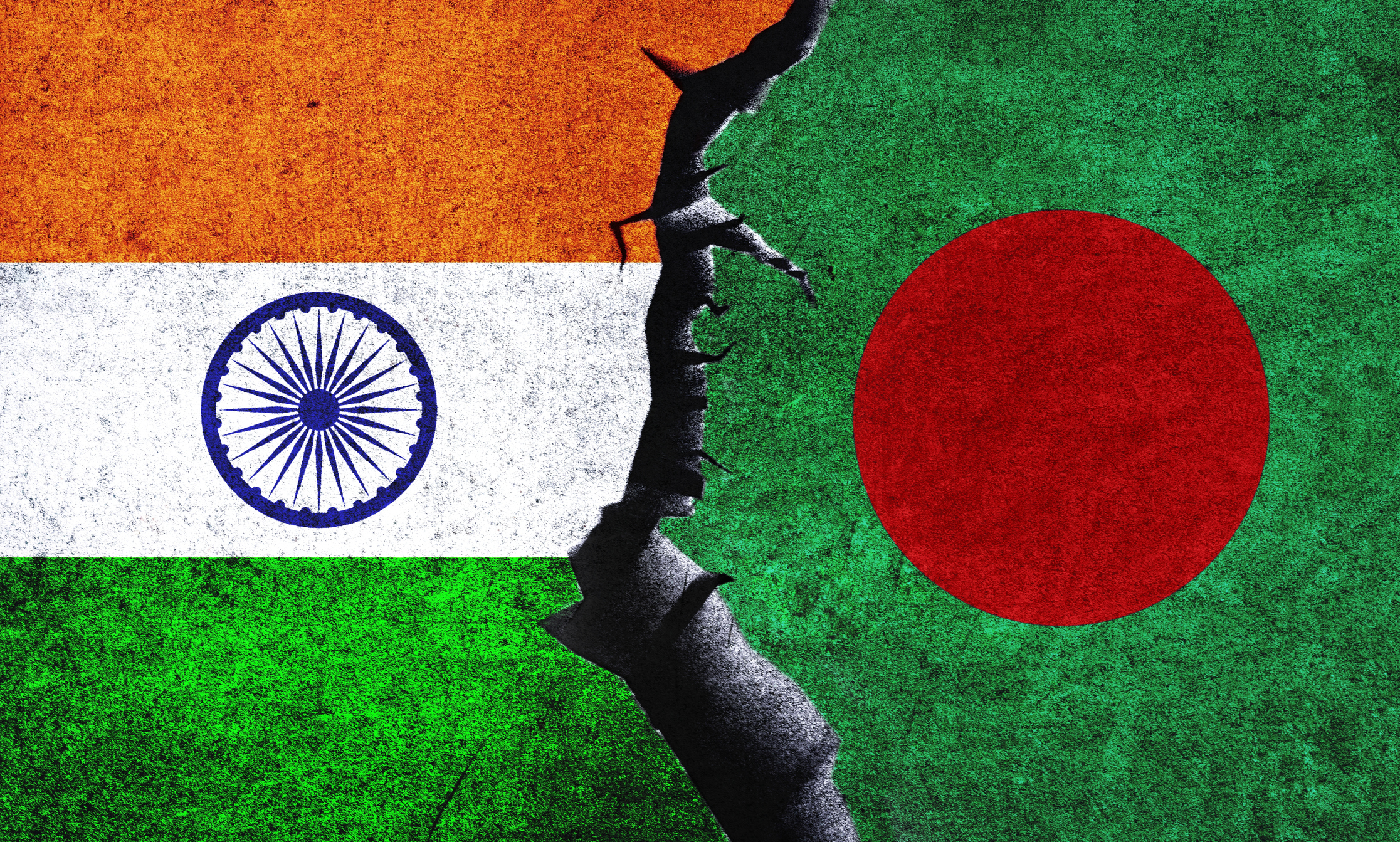
India-Bangladesh relations, once a model of neighborly cooperation, are now at a critical juncture. Since the student-led interim government in Dhaka assumed power on August 5, 2024, bilateral ties have soured, marked by growing mistrust and diverging strategic alignments. India’s strained relationship with Bangladesh is no longer just a bilateral concern but a geopolitical challenge with far-reaching implications for South Asia and beyond.
India’s close partnership with Sheikh Hasina’s Awami League government had provided a semblance of stability. Despite international criticism of her government’s authoritarianism, India valued Hasina’s role in combating extremism and fostering economic ties. However, her departure and the rise of Nobel laureate Mohammad Yunus as interim leader have disrupted this dynamic. Yunus has openly accused India of harboring Hasina and demanded her extradition, further straining relations. New Delhi is alarmed by the interim government’s release of Islamic extremists and terrorists, fearing a resurgence of cross-border terrorism. Meanwhile, Dhaka accuses India of inflating concerns over communal violence against Bangladesh’s Hindu minority, alleging that New Delhi is spreading disinformation to justify its tough stance.
A flashpoint in the deteriorating relationship was the arrest of Hindu monk Chinmoy Krishna Das in Bangladesh on sedition charges. This event sparked communal riots and protests, including a breach of the Bangladeshi High Commission office in Agartala, India. The incident underscored the fragile communal harmony in both nations and amplified mutual distrust. Despite efforts by Indian Foreign Secretary Vikram Misri to mediate, the crisis remains unresolved, leaving a cloud over bilateral ties.
The deterioration in India-Bangladesh relations has significant implications for regional geopolitics. China has been quick to capitalize on the vacuum. Chinese ambassador Yao Wen has actively engaged with Yunus, opposition parties, and even Jamaat-e-Islami, an Islamist group viewed with suspicion in India. Beijing’s inclusive outreach contrasts sharply with New Delhi’s selective engagement and positions China as a reliable partner. India’s reluctance to engage with Jamaat-e-Islami and its cautious approach toward the BNP have limited its influence. Modi’s decision to avoid an in-person meeting with Yunus at the United Nations General Assembly further signaled India’s hesitance. Meanwhile, China’s proactive diplomacy is reshaping the strategic calculus in Dhaka, potentially tilting the balance in its favor.
Economic ties between India and Bangladesh, once a cornerstone of their relationship, are under strain. The controversial Adani Power deal, which saddled Bangladesh with $500 million in debt, has become a point of contention. Yunus has criticized the lack of transparency in such agreements and signaled a shift toward competitive bidding. This opens the door for Chinese alternatives, which are often more financially attractive despite their long-term strategic costs. China’s involvement in developing Bangladeshi ports, including Chittagong and Mongla, further threatens India’s economic and strategic interests. Enhanced Chinese access to these ports would solidify its “string of pearls” strategy, encircling India in the Indian Ocean.
Pakistan’s rapprochement with Bangladesh adds another layer of complexity. The easing of trade and visa restrictions, coupled with military cooperation, signals a thaw in relations that had been frosty since Bangladesh’s independence. Islamabad’s growing ties with Dhaka, facilitated by their shared ties with China, heighten India’s strategic concerns. The docking of a Pakistani cargo ship at Chittagong port for the first time in five decades and Islamabad’s provision of ammunition to Bangladeshi security forces signal a renewed alignment. Dhaka’s decision to waive customs inspections for Pakistani imports and ease visa requirements heightens fears of Bangladesh becoming a hub for extremist activities. The United States has a vested interest in maintaining stability in South Asia. Escalating tensions between India and Bangladesh could distract Washington from its strategic focus in the Indo-Pacific. Closer India-US collaboration on Bangladesh could help counter China’s expanding influence and promote a free and open region.
India-Bangladesh relations are at a crossroads. While challenges abound, opportunities for rapprochement exist. A recalibrated strategy that emphasizes dialogue, inclusivity, and mutual respect can help New Delhi navigate this complex relationship and secure its strategic interests in the region. The evolving dynamics in Bangladesh present both challenges and opportunities for India. By recalibrating its approach and fostering stronger bilateral and regional partnerships, New Delhi can navigate this turbulent period and safeguard its strategic interests.
